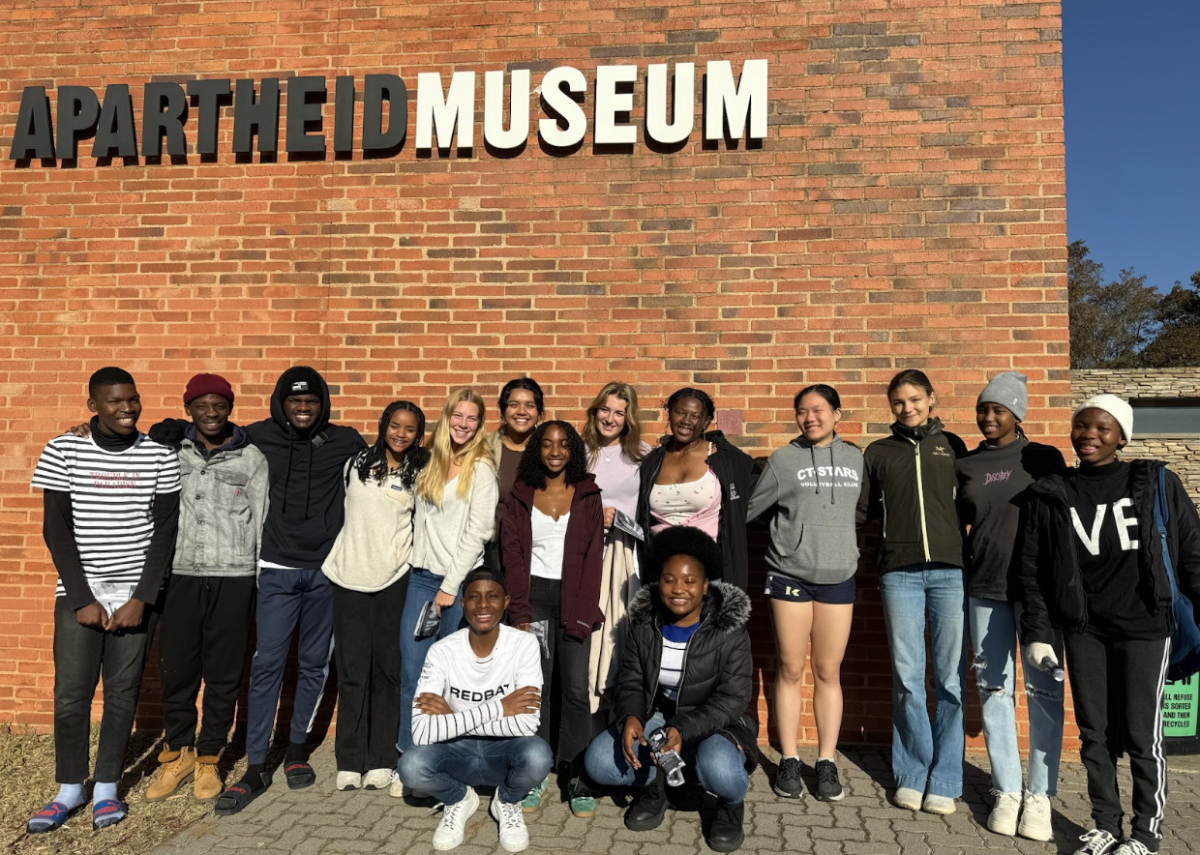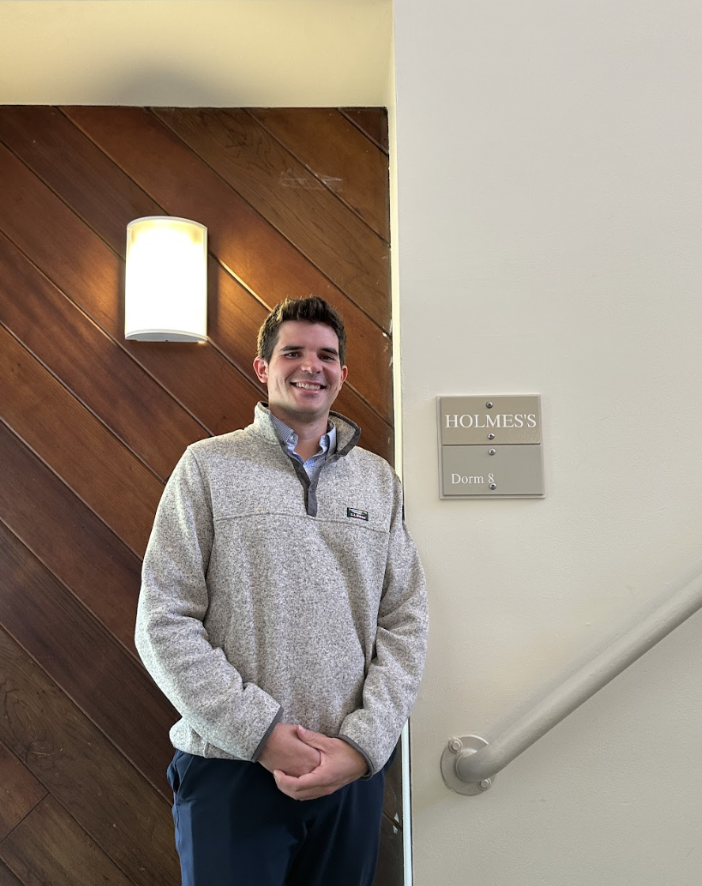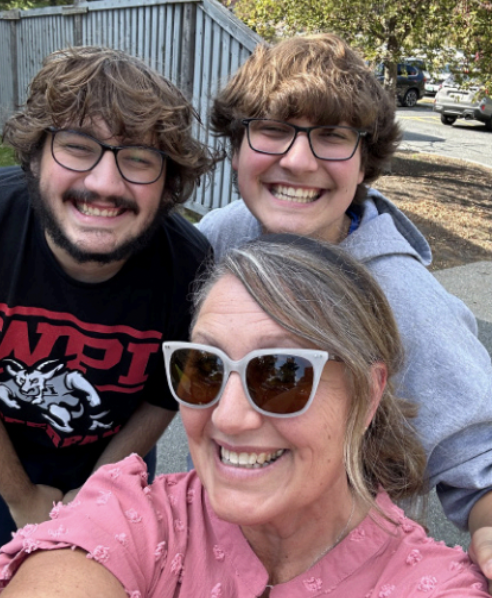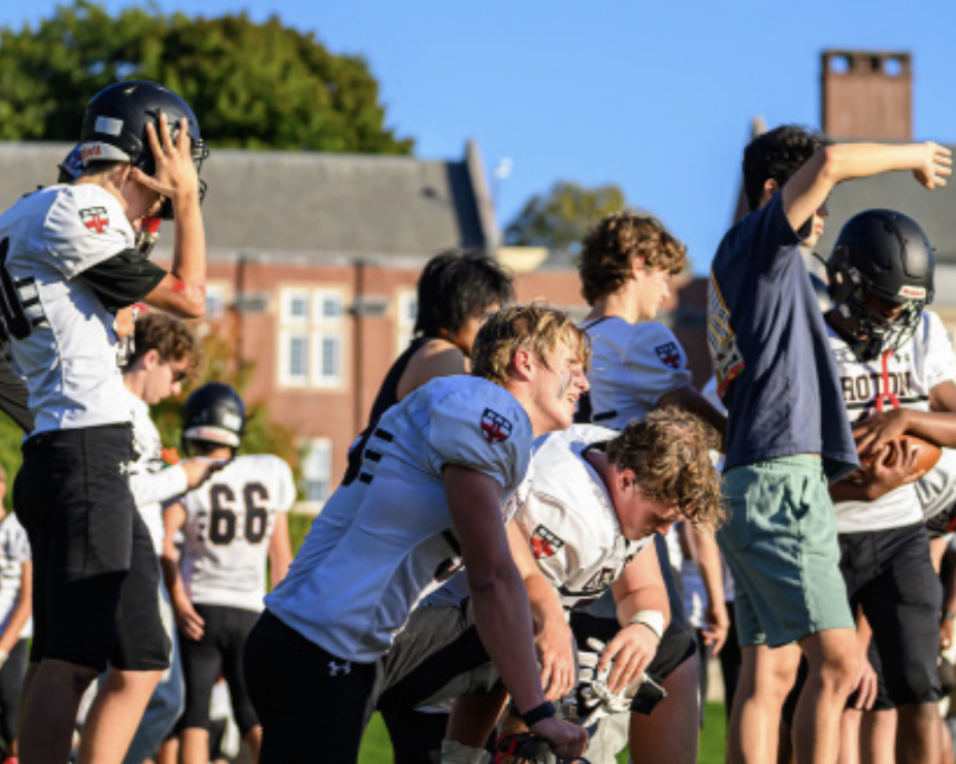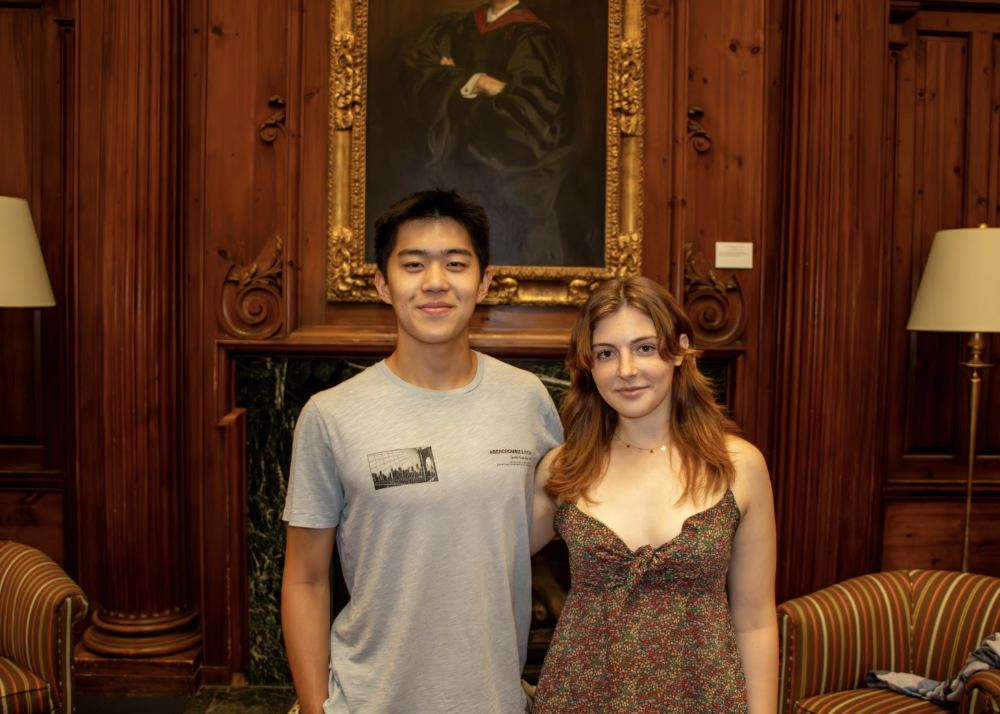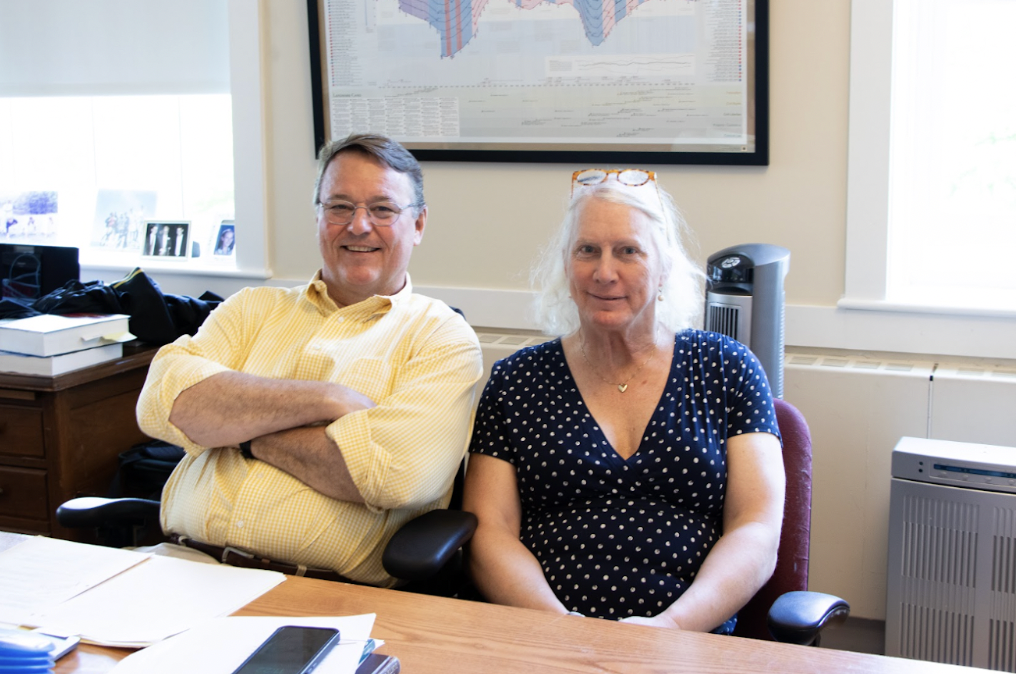After months of WhatsApp messaging, Zoom calls, and poetry writing, the Imagine Scholars Groton (ISG) students flew to South Africa to meet up with their counterparts in Mpumalanga for the annual Imagine Scholars Poetry Festival, a week-long event culminating in a Grand Slam. After the slam, we joined forces with the South African Imagine Scholars, traveling around Mpumalanga, Johannesburg, and Cape Town to immerse ourselves in cultural experiences new to both groups, including two safaris, several museums, a cooking class, and a visit up Table Mountain.
In the Lesedi Cultural Village, we talked to local mothers who gave us each a traditional South African name. Sage’s new name was Noluaze, given because both Sage and Noluaze mean “wise.” Sophia’s new name, Bohali, means “smart” or “clever,” because “Sophia” means “clever” in Greek. After we conversed with them and exchanged aspects of our cultures, including discussing our love for our families and our favorite celebrities, we ate a homemade South African meal which consisted of cabbage, green beans, pap (cornmeal porridge), and chicken, paired with the two delicious sauces that tasted like a blend of curry and barbecue.
We traded words and phrases with each other in Zulu and English, showcasing our new lingual abilities. We also talked about our lives in our respective countries, discussing political situations such as the recent South African election and the upcoming U.S. presidential election. To finish the visit, we gathered in a circle and sang a Swahili call-and-response song paired with a simple yet uplifting dance.
One of the greatest lessons we learned was that a little energy can go a long way. The Imagine Scholars always had an abundance of positivity and support for one another. Their optimism was evident in their singing, dancing, and chanting—something that both strengthened their bond as a community and helped us newcomers feel included and at home. By the end of the two weeks, we were as energetic, positive, and interested as they were in experiencing the different cultures and facets of the world. Traveling to new places—especially destinations with cultures different from one’s own—can be daunting and maybe even discouraging, but with the right mentality, any place can become a second home filled with lifelong friends and unforgettable memories, just as South Africa now is for us.
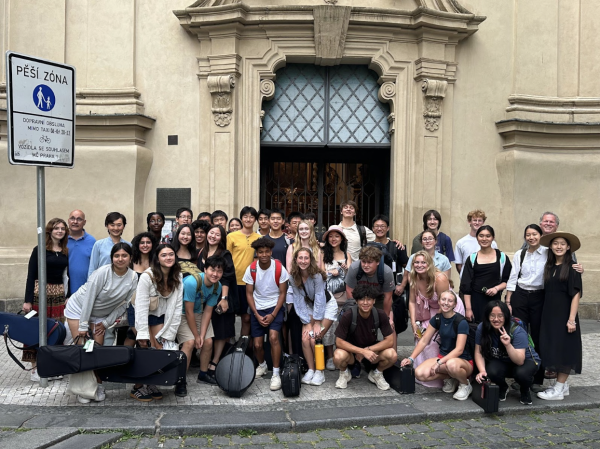
Orchestra in Europe
By AMANDA CHANG ’26
Armed with Rossini’s Barber of Seville, Beethoven’s Overture to Egmont, Saint-Saëns’ Bacchanale, an arrangement of How to Train Your Dragon by Alexander Newman ’25, and an assortment of chamber music, the Groton Chamber Orchestra arrived in Europe. After landing in Milan, we moved by bus through Italy, Slovenia, Austria, the Czech Republic, and Germany. Once we settled into our hotels, we often spent the day weaving through the cities in small groups—experiencing the delights of a gondola, the Mirabell Gardens, or even tobogganing down a mountain at our own pace—before converging to perform in what was usually a small church.
In Ljubljana, the capital of Slovenia, we wandered the streets and explored the farmers’ market. Surrounded by dozens of stands selling fresh fruits, vegetables, handmade clothes and ornaments, we marveled at the vibrancy of Ljubljana that early Saturday morning. Later that afternoon, we had a master class with guest conductor Slaven Kulenović, where we played side-by-side with students from the Academy of Music at the University of Ljubljana. For a few hours, under Mr. Kulenović’s guidance, we parsed through every measure and detail—a grueling but highly rewarding experience that allowed us to shine in our performance that night.
Our time on this GEO helped us realize that music truly does bring people together. Although we were often unable to communicate with our audience through words, we bonded through a shared love of music: they felt the same joy and pleasure listening to us as we did performing for them. Similarly, our shared repertoire brought us closer to the Slovenian music students, allowing us to make the most of Mr. Kulenović’s teachings during the rehearsal and get to know each other afterward. Even when we introduced a more niche piece, such as How to Train Your Dragon, their interest never wavered, and, in these moments, our cultures intersected in such a way that one could almost touch the thread that connected us all together.
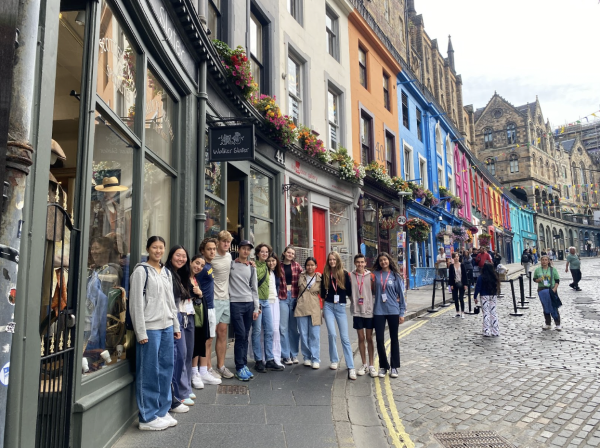
Theater in Scotland
By SOPHIE ZHU ’25
The Scotland GEO traveled to Edinburgh, where we spent two weeks participating in the Edinburgh Fringe Festival both as performers and as the audience. We put on a total of four performances of our original play, Away Went the World and also watched a number of incredible shows, such as a circus act from Colombia, a completely improvised musical from the U.S., and a dance performance from South Korea. My favorite moment was our sunrise hike to Arthur’s Seat, the highest spot in Edinburgh. Most of us were up at four in the morning to prepare for the hike. The walk up took about 40 minutes, but it felt much shorter with everyone’s chatter, and the music blasting through a speaker motivated us to climb one peak, then the next. When the first sun rays burst through the horizon, our collective silence enhanced the wonder of the moment. Throughout the GEO, we experienced different forms of theater, but one common lesson was that an actor should always commit to the story. If the actor is not convinced about the story they are telling, the story becomes much less engaging, and the audience loses interest. Our daily check-ins, when we reflected on the shows that we watched, helped us remember this lesson as we prepared for our own performances. Overall, the GEO was a resounding success, and we hope to have set a good example for later excursions to the Fringe!
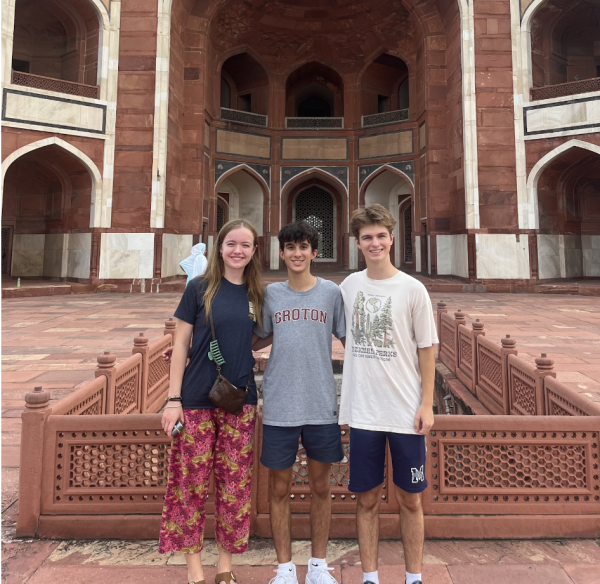
The Doon-Welham Student Exchange
By CAROLINE CREASY ’25, HENRY FOSTER ’25, DANIEL PALMER ’25
At the end of the summer, we traveled to the education capital of India, Dehradun, to attend the Doon School and Welham Girls’ School for two weeks. In our brief stint at these schools, we attended classes, immersed ourselves in school activities and culture, and explored the city. We learned about the Indian economy and its history and participated in school societies. Our highlight of the trip was our introductory Hindi class, during which we met with other exchange students from Hilton College of South Africa and several middle schoolers who were improving their Hindi foundation. Nightly sit-down dinners allowed us to try authentic Indian cuisine while connecting with students in an informal setting. In the foothills of the Himalayas, we explored the hill station of Moussouri. The mountainside was blanketed in a lush green like we had never seen before, while the town’s streets were lined with charming shops and cozy cafes. The streets were narrow, full of color, and filled with the most invigorating energy. We are fortunate to have participated in this educational experience and encourage every Groton student to step outside their comfort zone and explore the modern world.
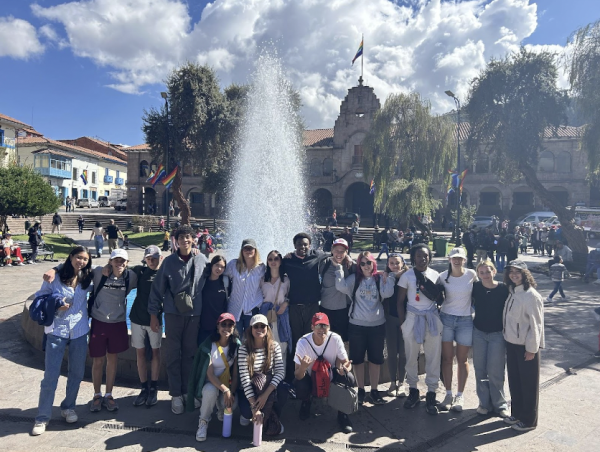
Spanish Scholars in Peru
By Asante Kiio ’25 and Vilhelmine Kopp ’26
After departing for summer break, the Peru GEO group traveled to South America with the goals of improving our Spanish, immersing ourselves in Peruvian culture, and cultivating connections with a diverse range of different people. We spent most of the time in the Incan village of Ollantaytambo, making stops in Lima and Cusco along the way. Throughout the three weeks, we connected with our host families by working with them at local farms and shops, playing with our host siblings, and enjoying traditional homemade meals. The connections we made with the community in Ollantaytambo were only one side of the coin; the other was the connections we made with each other. The Peru group consisted of 15 different students arriving in the country with completely different perspectives. Some of the students were well-versed in international travel, but for others, it was their first time leaving the country. There was a wide range of students from Third Form to Sixth Form, representing different levels of Spanish, with some students in Spanish 2 and others who had passed the AP level. Yet despite these differences, we all united in an effort to experience the many wonders that Peru has to offer. Some highlights for us consisted of exploring the outdoors with activities such as hiking in the mountains to an overnight camping site near Puma Marca, where we slept under the stars, leading workshops with the local kids and teaching them how to make friendship bracelets and play chess, and doing everyday activities with our host families to appreciate a lifestyle with a different pace then we are used to. The contrasts between this lifestyle and ours taught us to have a different outlook on what we value and how owning things in excess does not always equate to happiness. This trip showed us how 15 different perspectives could all be brought together to share one.


